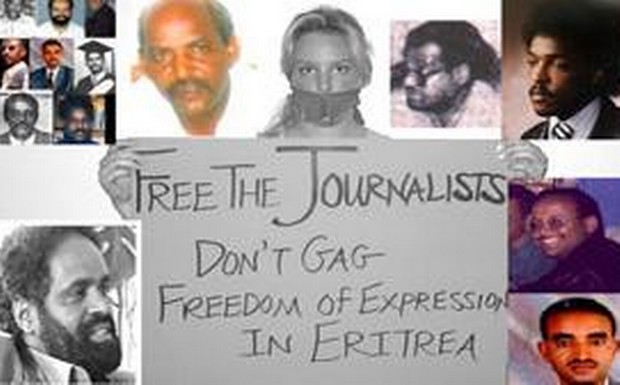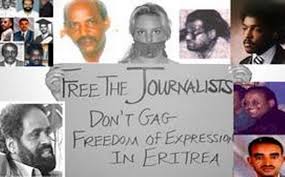

Our Special Correspondent
Saba Makeda
Somewhere in Eritrea, 3rd January 2014
(2 – continues)
In the first part of this story Saba Makeda
writes about the failed Eritrea Constitution
that the dictator didn’t want to implement.
You can find the article here
The demise of the independent press
The relationship between the state and private media had always been difficult and based on control and mistrust so much so that as early as 1990 the Mr Taha Mohmmed Nur, a former liberation fighter, and a respected elder gave up on efforts to establish a newspaper because the Ministry of Information was insisting to read everything before it was published.
Despite the difficulties by 2001 the Eritrean private press was very actively reporting on the issues affecting Eritrean in particular the issues raised by
(a) the students;
(b) the group of Eritrean intellectuals that became known as the G 13 and later the issues raised by
(c) 15 politicians that became known as the G 15.
At first, the government reacted by trying to stifle the media by arresting and conscripting the journalist. By June 2001 the Committee to Protect Journalist wrote to the Minister of Justice (Ms Fawzia Hashim) asking the whereabouts of 15 Eritrean Journalists who were believed to have been arrested or forcibly conscripted.


Eritrea is presently a country where the only way for people to know what is going on is by word of mouth – bado seleste (03) , bado tsciate (09) ; or arbi harenet ( freedom Friday) . When the volcano exploded in the Danakil depression in 20012, most Eritreans heard the news from the international media or from relatives in the areas affected.
Saba Makeda
Makedasaba@ymail.com
(2 – continues)
Africa ExPress 29 marzo 2025 Sonja Nientiet, cittadina tedesca, infermiera del Comitato della Croce Rossa…
Speciale per Africa ExPress Sandro Pintus 28 marzo 2025 Benin, Costa d'Avorio, Nigeria, Ruanda, Sudafrica,…
NEWS ANALYSIS Alberto Negri 26 marzo 2025 Perché Israele non può fermare le guerre e…
Speciale per Africa ExPress Claudia Svampa Roma, 25 marzo 2025 Sarà presentato domani 27 marzo…
Dal Nostro Corrispondente Sportivo Costantino Muscau 25 marzo 2025 Non basta saper nuotare, bisogna saper…
Speciale per Africa ExPress Cornelia I. Toelgyes 24 marzo 2025 I gruppi armati attivi nel…